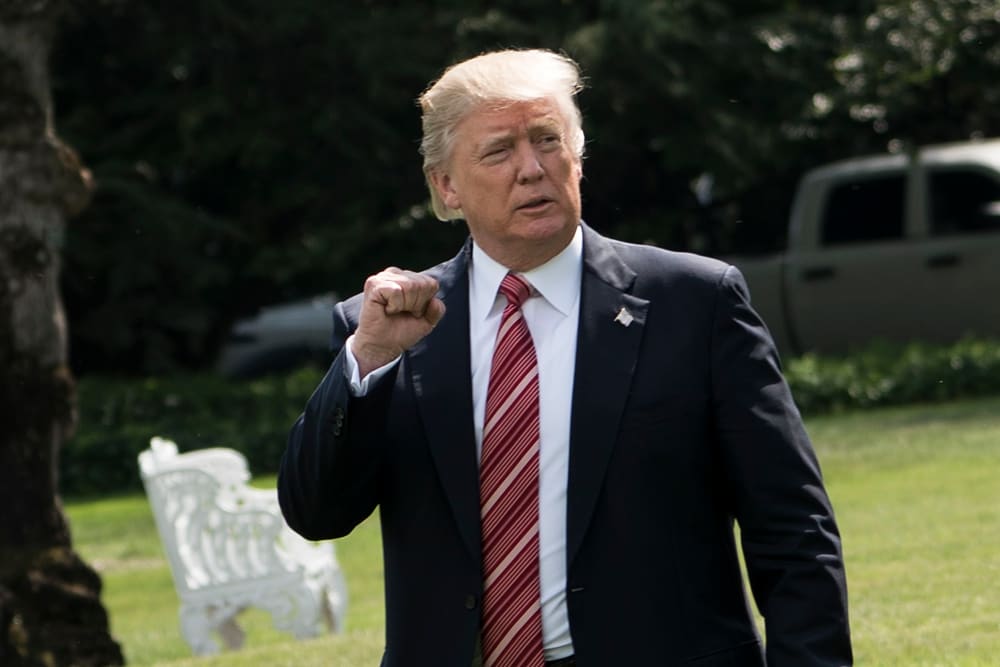Two weeks ago, Donald Trump boasted to a Phoenix audience that his fight for a border wall was well on its way. “We are building a wall on the southern border,” the president said, adding, “Believe me, if we have to close down our government, we’re building that wall.”
The likelihood of a government shutdown at the end of the month — when current federal spending is exhausted — immediately went up. The spike, however, was temporary: the Washington Post reports that the White House has let congressional Republicans know that if they pass a stop-gap spending bill to keep the government’s lights on until December, Trump will accept it, even if it doesn’t include any funds for his wall proposal.
The president, in other words, was bluffing. Indeed, this was a sequel of sorts: in April, Trump told Congress he’d force a government shutdown unless lawmakers included wall funding in a temporary spending measure, only to quietly slink away when Congress balked.
All of this came to mind over the Labor Day weekend, when Trump offered yet another example of trying to talk tough, this time about Asia-Pacific foreign policy. The president wrote on Sunday:
“The United States is considering, in addition to other options, stopping all trade with any country doing business with North Korea.”
This was, of course, absurd. China, which has the world’s second largest economy, does business with North Korea, and was probably the intended recipient of the American president’s message. But Trump can’t stop all trade with China without crashing the economy. As the New York Times noted this morning, U.S. trade with China is worth “nearly $650 billion a year in goods and services covering a range of items, like auto parts, apple juice and Apple’s widely anticipated new iPhone.”
Which means we have yet another example of Trump bluffing — badly — which doesn’t do anyone any favors.












